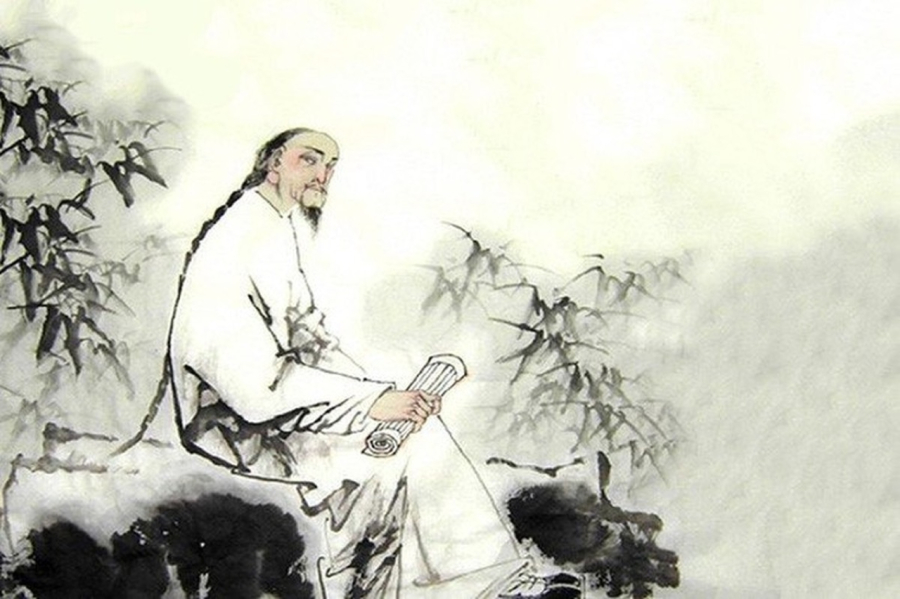In the letter, Ky Hieu Lam outlined four prohibitions and four recommendations for her children, which are as follows:
The Four Prohibitions
- Prohibit Waking Up Late
According to Tang Guo Pian, waking up late is a bad habit that can ruin one’s family reputation. In a letter to his younger brother, he wrote, “If you want to get rid of laziness, you must get out of bed early in the morning.”
We often say that self-improvement starts with self-discipline. We must begin with diligence, use hard work to overcome laziness, and let dedication replace mediocrity. With diligence, there is nothing in the world that cannot be achieved.

Ky Hieu Lam’s letter outlined four prohibitions and four recommendations for her children. (Illustrative image)
- Prohibit Laziness
Throughout history, countless ordinary people have failed due to laziness, and many talented individuals have met their downfall because of arrogance.
The vast majority of those who live mediocre lives do so because of their indolence. Initially, they may have had average intelligence, but their determination to study and practice diligently set them apart, and they eventually became great teachers.
- Prohibit Extravagance and Wastefulness
An ancient saying goes, “Success comes from frugality, while failure stems from extravagance.” History flows like a vast river, relentlessly moving forward through time. In the past, those who accumulated wealth and prestige did so by embracing frugality, while the decline of once-prosperous families can often be traced back to extravagance.
Frugality is the antithesis of extravagance. In his book, “Teaching Children’s Book,” Zhuge Liang wrote: “Use calmness to cultivate oneself and frugality to nurture one’s virtues.” This means that we should use our inner peace to nurture our bodies and minds and adopt a frugal lifestyle to cultivate our moral character.
Chu Zi’s “Family Instructions” states: “A bowl of porridge, a bowl of rice—remember that it is not easy to earn these; half a strand of silk, half a strand of thread—know that it is challenging to produce these.”
These quotes serve as a reminder to those who lack a sense of frugality to appreciate the value of the things they have, as acquiring them is never easy.
- Prohibit Arrogance
Arrogance invites loss, while humility brings gain. Once a person becomes arrogant, they lose their motivation to improve. Arrogance breeds a sense of entitlement and a condescending attitude towards others.
No one willingly befriends an arrogant person, as arrogance is a sign of disrespect that begets a lack of respect and support from others. The philosopher Wang Yangming once educated his children, saying, “People nowadays suffer from a severe illness called arrogance. Countless sins and evils stem from this very arrogance.”
When one is arrogant, they inevitably neglect other essential aspects of life, inviting disasters and failures. Arrogance paves the way for self-destruction, as the ancient saying goes, “Pride leads to certain defeat.”
The Four Recommendations
- Recommend Reading Books Diligently
Tang Guo Pian said, “Human nature is innate and challenging to change. However, reading books can transform this nature.”
Encouraging children to read books can only bring benefits, not harm. Parents should instill the habit of daily reading in their children from a young age.
Moreover, reading diligently provides a foundation for understanding the incomprehensible and a method for tackling the unsolvable, transforming the ignorant into the wise and opening the minds of the narrow-minded.
- Recommend Respecting Teachers
“A teacher for a day is like a father for a lifetime.” Compared to modern times, the teacher-student relationship in ancient times was even more revered.
In the past, when parents brought their children to school for enrollment, they would not only bow and pay respects to the teacher but also to the plaque of Confucius. The ancients considered respecting teachers to be of utmost importance. The book “Lü’s Spring and Autumn Annals – Respecting Teachers” states: “Just as we must nurture and revere our parents, so too must we respect our teachers.”
- Recommend Loving Others
The book “The Analects” states: “Love everyone equally and treat the virtuous as your kin.” This teaches us to embrace a spirit of universal love and to be close to those with virtue.
Education should first focus on character development and moral cultivation before moving on to knowledge and skill acquisition.
- Recommend Moderation in Eating
“The Rules for Students” states: “When it comes to food, do not be picky. Eat only enough to satisfy your hunger, not to the point of fullness.” The quality of a child’s life is closely tied to their daily habits. Overeating, staying up late, and waking up late are all signs of an unregulated lifestyle.
Lao Tzu said, “The sage seeks to fill the belly, not the eye.” We eat to satisfy our hunger, not to indulge our eyes.
Modern diseases like cancer, diabetes, and gout often result from overnutrition and dietary imbalances. Therefore, it is crucial to instill disciplined and moderate eating habits in children.































